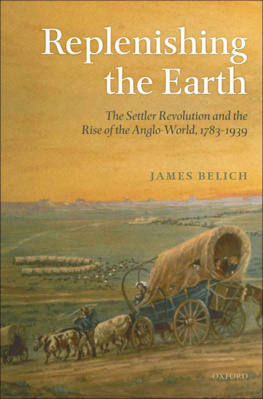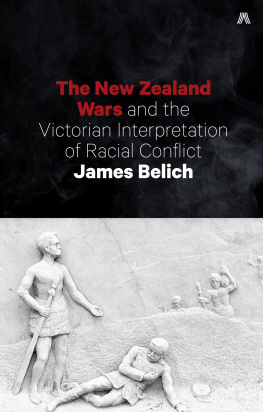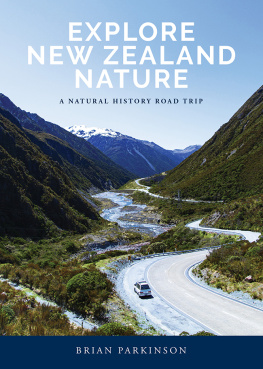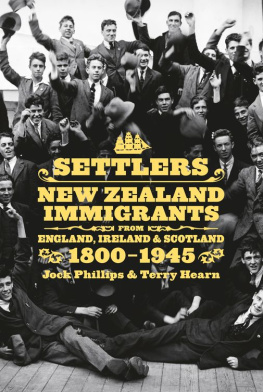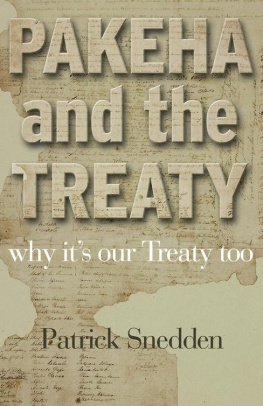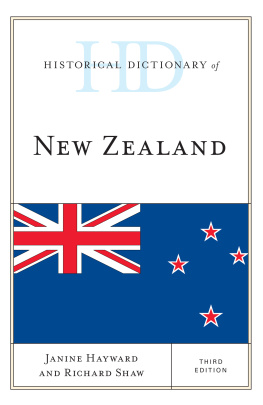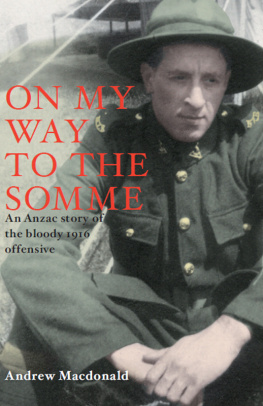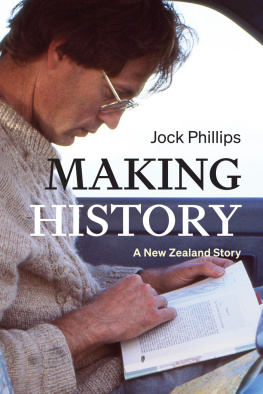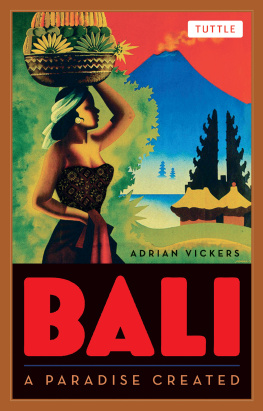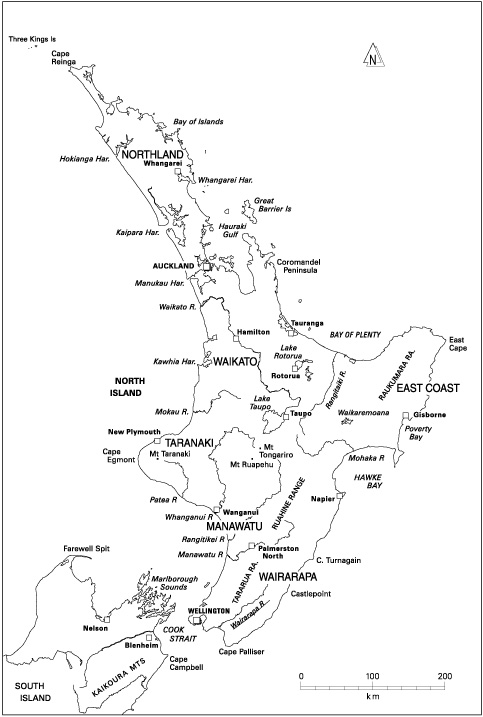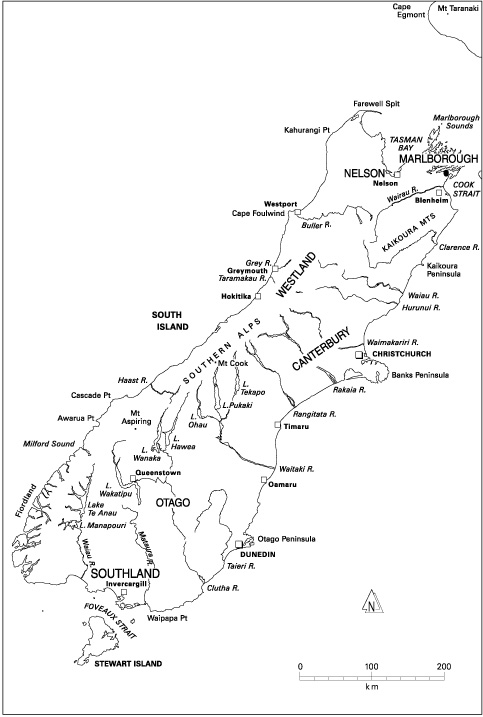PARADISE REFORGED
A History of the New Zealanders
From the 1880s to the Year 2000
JAMES BELICH
PENGUIN BOOKS
Published by the Penguin Group
Penguin Group (NZ), 67 Apollo Drive, Rosedale, North Shore 0632, New Zealand (a division of Pearson New Zealand Ltd)
Penguin Group (USA) Inc., 375 Hudson Street, New York, New York 10014, USA
Penguin Group (Canada), 90 Eglinton Avenue East, Suite 700, Toronto, Ontario, M4P 2Y3, Canada (a division of Pearson Penguin Canada Inc.)
Penguin Books Ltd, 80 Strand, London, WC2R 0RL, England
Penguin Ireland, 25 St Stephens Green, Dublin 2, Ireland (a division of Penguin Books Ltd)
Penguin Group (Australia), 250 Camberwell Road, Camberwell, Victoria 3124, Australia (a division of Pearson Australia Group Pty Ltd)
Penguin Books India Pvt Ltd, 11, Community Centre, Panchsheel Park, New Delhi 110 017, India
Penguin Books (South Africa) (Pty) Ltd, 24 Sturdee Avenue, Rosebank, Johannesburg 2196, South Africa
Penguin Books Ltd, Registered Offices: 80 Strand, London, WC2R 0RL, England
First published by Penguin Group (NZ), 2001
Copyright JAMES BELICH 2001
The right of JAMES BELICH to be identified as the author of this work in terms of section 96 of the Copyright Act 1994 is hereby asserted.
Digital conversion by Pindar NZ
All rights reserved. Without limiting the rights under copyright reserved above, no part of this publication may be reproduced, stored in or introduced into a retrieval system, or transmitted, in any form or by any means (electronic, mechanical, photocopying, recording or otherwise), without the prior written permission of both the copyright owner and the above publisher of this book.
A catalogue record for this book is available from the National Library of New Zealand.
www.penguin.co.nz
ISBN 9781742288239
Contents
For Jim and Valerie
PREFACE
This book is an interpretive general history of the New Zealanders from the 1880s to the present. It can be read as a stand-alone work, covering the making of modern New Zealand. It is also the sequel to Making Peoples: A History of the New Zealanders from Polynesian Settlement to the End of the Nineteenth Century . Historical writing is a context in which sheer mass is no necessary cause for pride, but together the two books do comprise the largest interpretive single-author history of New Zealand yet written.
Paradise Reforged traces the New Zealanders through the two great transitions of their modern history. The rst transition, beginning in the 1880s, saw the demise of the remarkable system of progressive colonisation that created the Pakeha people and marginalised the Maori people in less than half a century. There was nothing steady about its kind of progress, which was characterised by frenetic demographic and economic growth rates among the highest in human history. This system of explosive settlement and extraction began its collapse in the 1880s, and completed it by the 1900s. Meanwhile, an equally remarkable replacement system struggled to its feet. My label for this is recolonisation. This actually tightened New Zealands links with its metropolis, Britain, to the point where 12,000 miles of distance were transcended and New Zealand became in many respects a virtual Scotland. Recolonisation made modern New Zealand an ideological and economic (though not necessarily a cultural and social) semi-colony of Britain, and a central thesis of this book is that it remained so to the 1960s. In some respects, New Zealand history and culture is still in a state of denial about this hard fact.
Yet, like Scotlands relationship with England, New Zealands relationship with Britain had benets as well as costs. This book tries to explore both, and to understand a system that transcends both conventional denitions of subordinate colonialism and the conventional national packaging of history. The concept recolonisation the tightening of relations between metropolis and periphery after an era of mass settlement also has applications in Australian and Canadian history. Recolonisation consisted partly in the conviction that Australians, Canadians and New Zealanders were Britons too indeed, in some respects better Britons than those of the homelands. For a time, neo-Britons of the white dominions also saw themselves as metropolitan: they were co-owners of the British Empire and of Old British culture and heritage. Living standards, egalitarianism and some other public goods were typically superior in the neo-Britains than in the Old, and it was often unclear who was exploiting whom. Recolonisation is therefore also intended to imply a strand of inverse colonialism the possibility of mutual exploitation, or symbiosis, between metropolis and periphery. This book conducts an internal debate about whether recolonisation was good, bad, both, or neither.
Recolonisation clung on somewhat longer in New Zealand than in Australia or Canada. Its demise here dates to the 1970s, and constitutes the second great transition of our modern history. Decolonisation, 1970s90s, brought economic diversication, greater independence in foreign policy and collective identity, and a great socio-demographic coming out of difference. It also brought slow economic growth, insecurity, trauma and challenge all the more because it remains partly unrecognised. Recolonial transnationalism was partly replaced by the recent spasm of internationalisation known as globalism. As New Zealand cultural and economic maturity gets belatedly to its own feet, there is a chance that it will be washed away or made redundant by globalising tides. This is one of many challenges brought by the era of decolonisation, whose midst is the present. Our chances of meeting them should improve if we take a clearer look at our past.
The rise and fall of recolonisation is the backbone of this book, but it is very far from the whole of it. The book is organised in three pairs of parts, each pair roughly associated with a period: 1880s1920s, 1920s60s, 1960s2000. The rst part in each pair (Parts One, Three and Five) deal in what might be called over-history; the second (Parts Two, Four and Six) in under-history. Over-history is closer to the conventional political focus of older general histories, but even here politics is mixed equally with economics, international relations, technology and ideology. Under-history deals with social, demographic and cultural history, and with the story of the remarkable twentieth-century resurgence of the Maori people. Its themes range from class, gender and ethnicity to folklore, childhood, sport and sex. I range with varying degrees of comfort over these and other themes, seeking to understand stories as well as tell them, ungratefully second-guessing the specialists on whom I rely, and speculating into gaps where there are no specialists. As noted in the Preface to Making Peoples , this is a risky business. I accept the risks in the hope of conveying a whole history, of provoking experts into improving on my speculations, and of converting mere information into understanding.
The numerous debts I incurred in beginning this project are acknowledged in the Preface to Making Peoples . I incurred yet more in completing it. I am grateful to Raewyn Dalziel, Barry Reay, Judi Binney, Linda Bryder and Barbara Batt and all the other members of the University of Auckland History Department for their patience with a distracted colleague. The Universitys Research Committee supplied crucial nancial help for the nal phase of the research. The Marsden Fund and the Fulbright Foundation funded my work on a separate project internationally applying hypotheses drawn from New Zealand history. There has been considerable cross-germination between this project and the present book, and I am very grateful for the opportunity for synergy. Several heroic individuals read all or part of the manuscript and provided comments: Jim Belich, Colin Feslier, Tim Hazledine, Richard Hill, John Hood, Melanie Nolan, John Pocock, Andrew Sharp and Rawiri Taonui. Others who helped in various ways include: Anna Ashwell, Angela Belich, Evana Belich, Tom Brooking, John Darwin, Derek Dow, Mike and Tricia Kyrke-Smith, Roger Louis, Joan Metge, Annette Mortensen, Erik Olssen, Jock Phillips, David Scott, Tainui Stephens, Huw Richards and Bronwyn Williams. I am especially grateful to Anna Gibbons for her help. Grace Tompkins, Dick Teare, John McNeill, Kevin Kane, Greta Van Zanten, George and Hilary Troup and my other friends at Georgetown University and the New Zealand Embassy in Washington helped re-energise me for the nal sprint for the nishing line. My publisher, Geoff Walker, and his colleagues at Penguin Books have again been helpful and extremely patient. I am also grateful to Richard King, my editor; Anna King, who checked the references; and to Nik Andrew for the cover design. My wife, Margaret, and my daughters, Maria and Tessa, as always, provided the crucial support.



